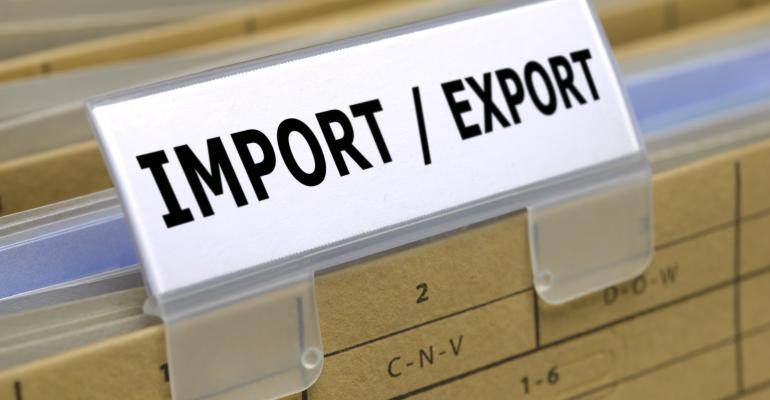(Bloomberg) — After months of uncertainty about a border-adjusted tax, retail CEOs are renewing efforts to quash the idea.
Executives are planning to host a meeting with Treasury Secretary Steven Mnuchin on Tuesday to reinforce their opposition to the tax policy, which is a centerpiece of House Speaker Paul Ryan’s agenda. Ryan’s plan would replace the existing corporate income tax with a 20 percent levy on U.S. companies’ domestic sales and imports. Exports would be excluded.
The 10-person group that’s meeting with Mnuchin includes chief executive officers from both retail and consumer-product companies, according to Brian Dodge, senior executive vice president for public affairs for the Retail Industry Leaders Association. The lineup includes department-store chain J.C. Penney Co., apparel maker VF Corp. and battery producer Energizer Holdings Inc., he said.
Retail CEOs took the fight to derail border adjustment directly to President Donald Trump during a February meeting at the White House. The president didn’t include the concept in a one-page outline of a tax plan that the White House released last month, and Senate Republicans have been very cool to the measure, which critics say would hit consumers with higher prices.
Supporters’ Case
Industrial companies and other exporters, meanwhile, generally like the idea. They say it would boost investment in the U.S. and is the best path to a broader tax overhaul.
Its allies also include Bill Simon, the former chief of Wal-Mart Stores Inc.’s U.S. operations. He said the retail industry’s opposition to BAT was “self-serving and hysterical” in an interview Monday on Bloomberg Television. Simon, who left the world’s biggest retailer in 2014 and is now a senior adviser at Kohlberg Kravis Roberts & Co., said a phase-in period of between three and five years for the tax would be reasonable to giving chains time to react.
“Prices may go up, but that’s not a guarantee,” Simon said. “Good retailers will respond to the new rules.”
Orrin Hatch, chairman of the Senate Finance Committee, said earlier this month that Mnuchin and White House economic adviser Gary Cohn were opposed to the border-adjusted tax.
House Support
Despite the resistance, Ryan and his ally Kevin Brady, the Republican chairman of the House Ways and Means committee that oversees tax legislation, remain committed to it. Brady has acknowledged that the measure may need to be revised in order to make its way into final legislation.
Border adjustment is seen as key to the House leaders’ blueprint for tax reform because it raises the revenue to help pay for cutting the corporate tax rate. Having a revenue-neutral plan would help ensure that any tax changes would be permanent. Because GOP leaders don’t foresee winning any Democratic votes in the Senate, they plan to use a procedure that requires only a simple majority. That procedure requires that any legislative changes that add to the deficit outside a 10-year budget window must be set to expire.
Other CEOs scheduled to attend are from AutoZone Inc., Chico’s FAS Inc., Dollar General Corp., Ikea North America Services, PetSmart Inc., Tractor Supply co. and PVH Corp.
With assistance from Matthew Boyle. To contact the reporter on this story: Matt Townsend in New York at [email protected] To contact the editors responsible for this story: Nick Turner at [email protected] John Voskuhl
© 2017 Bloomberg L.P

